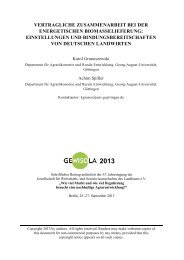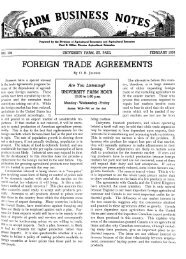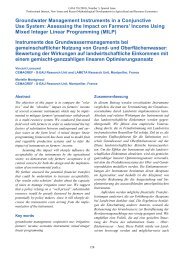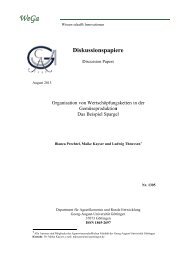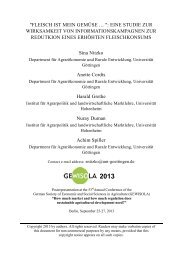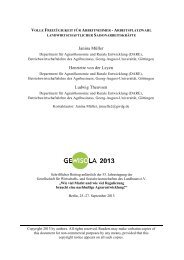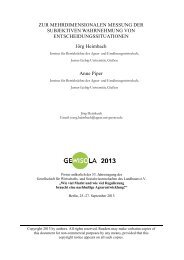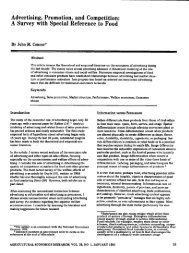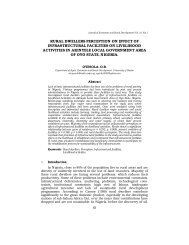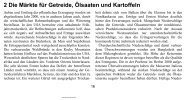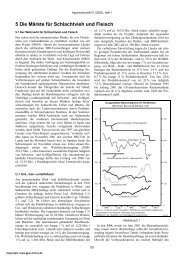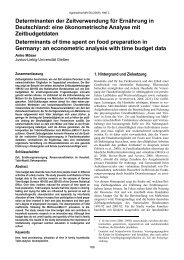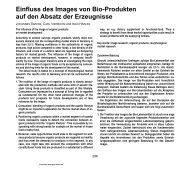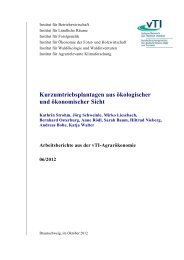District Institutes of Education and Training - Teacher Education
District Institutes of Education and Training - Teacher Education
District Institutes of Education and Training - Teacher Education
Create successful ePaper yourself
Turn your PDF publications into a flip-book with our unique Google optimized e-Paper software.
<strong>District</strong> <strong>Institutes</strong> <strong>of</strong> <strong>Education</strong> <strong>and</strong> <strong>Training</strong>: A Comparative Study in Three Indian States<br />
skill base. The inadequacy <strong>of</strong> training in this model was captured by a Masuda<br />
DIET lecturer:<br />
We are giving them demonstration <strong>and</strong> we have faith. But in ten days we cannot<br />
give them all the skills. So he is not becoming an expert in those skills, that why<br />
to use those skills in the schools is difficult (RAJ/MAS TT01 January 1999).<br />
<strong>Teacher</strong>s in Dhar <strong>District</strong> also raised the issue <strong>of</strong> the sustainability <strong>of</strong> training<br />
inputs. They saw more potential in a different, cluster-level approach, as one said:<br />
All this money in training is being wasted. If you really want to utilize this<br />
money, then you motivate teachers to see schools which are becoming<br />
better <strong>and</strong> progressing, so that teachers will learn from teachers <strong>and</strong> enforce<br />
that particular strategy in that cluster. If any problem arises in implementation,<br />
its solution should be sought through those teachers (MP/DHA T077<br />
September 99).<br />
5.4 <strong>Training</strong> processes<br />
During the project period, the project team observed many in-service training<br />
programmes. The following episodes <strong>of</strong> observation across DIETs in July 1999<br />
give an indication <strong>of</strong> the training approaches that staff were adopting.<br />
5.4.1 The transmission approach<br />
Special Orientation for Elementary <strong>Teacher</strong>s (SOPT) in Udaipur DIET<br />
In Udaipur DIET, staff placed much emphasis on the national Special Orientation<br />
for Elementary <strong>Teacher</strong>s (SOPT) programme. This centrally-sponsored scheme<br />
was launched in 1993-94 to cover 45000 elementary school teachers every year,<br />
<strong>and</strong> has three major foci:<br />
1. To provide competencies as envisaged in the Minimum Levels <strong>of</strong> Learning<br />
2. To develop competencies in the use <strong>of</strong> Operation Blackboard materials supplied<br />
to elementary schools<br />
3. To encourage teachers to adopt a child-centred approach to learning (MHRD<br />
1995: v).<br />
The teacher h<strong>and</strong>book for the scheme is divided into two parts: an ‘awareness<br />
package’ containing information about schemes <strong>and</strong> issues (such as Operation<br />
Blackboard, Minimum Levels <strong>of</strong> Learning, evaluation, education <strong>of</strong> special groups,<br />
multi-grade teaching) <strong>and</strong> a ‘performance package’ with seven units focusing<br />
directly on teaching (teaching <strong>of</strong> language, teaching <strong>of</strong> mathematics, teaching <strong>of</strong><br />
environmental studies, art education, etc.). It is up to the DIET itself to choose<br />
how this material is shared with teachers.<br />
DFID 101



